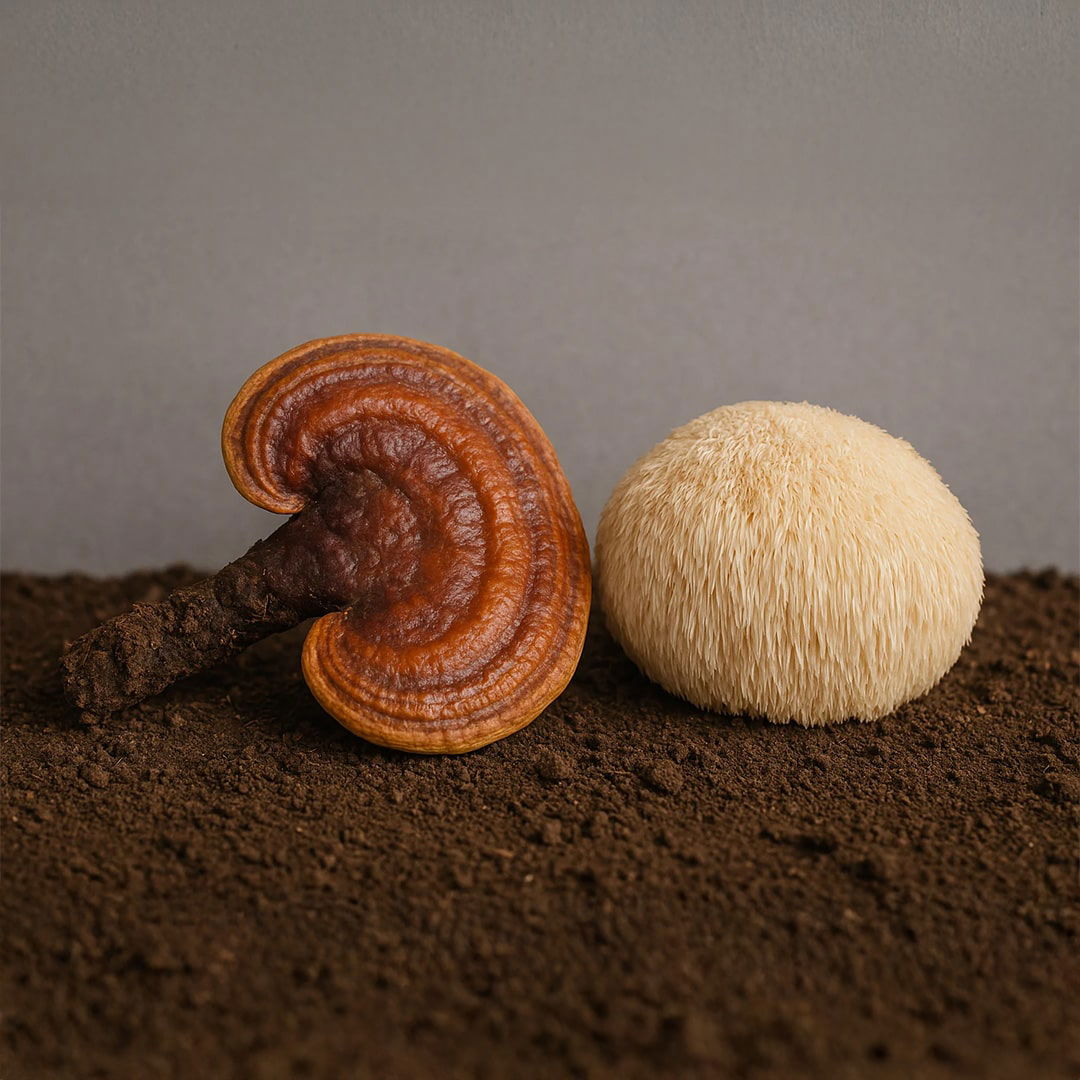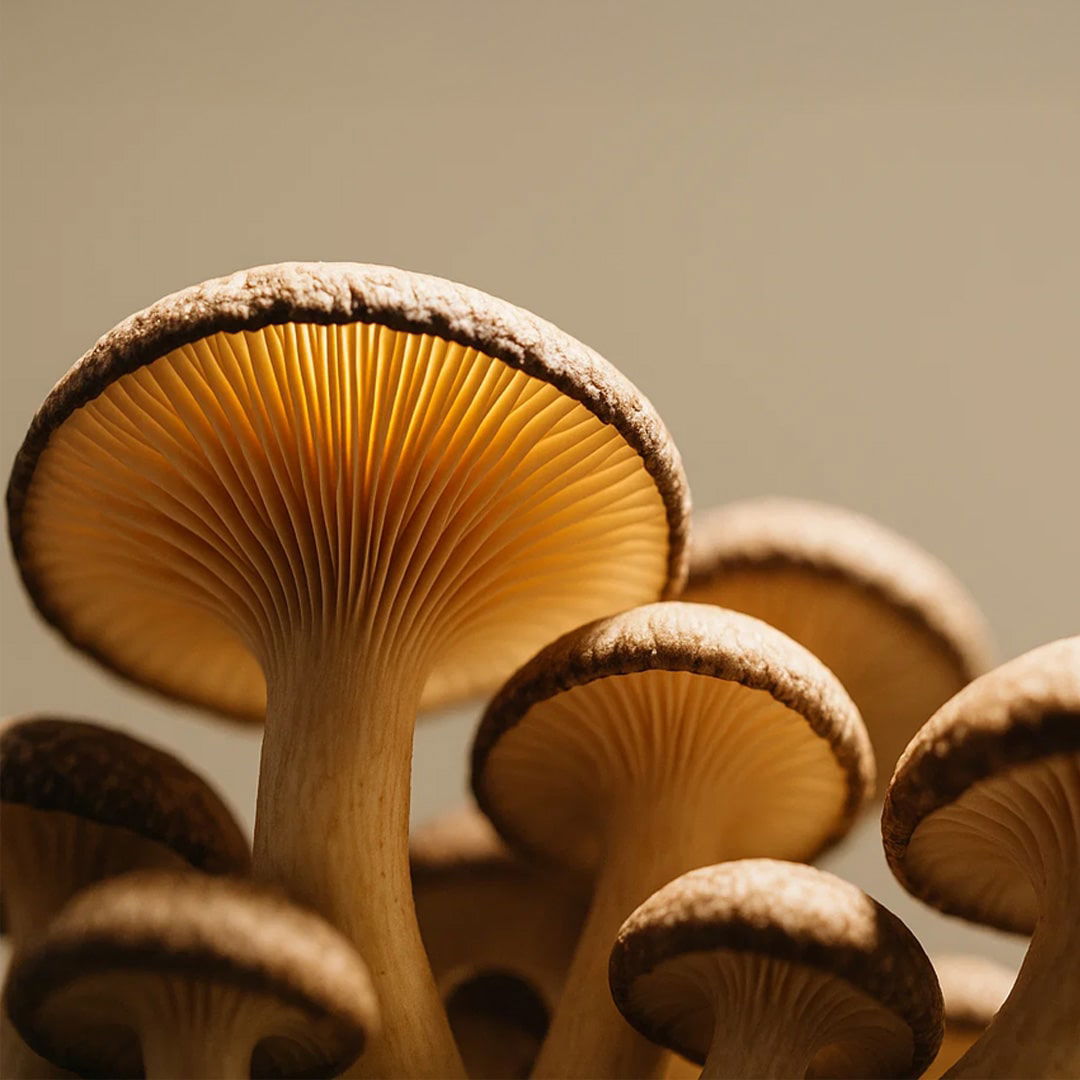Discovering Adaptogenic Mushrooms – Part 2
This isn't a marketing page. This is your space to understand—with clarity, without fluff. You've probably heard of adaptogens, functional mushrooms, or nootropics. Maybe you're curious. Maybe you're skeptical. Either way, you deserve transparency. And real answers. This Wiki explains what's in our formulas, where the ingredients come from, why we use them, and how they can help you feel like yourself again. No buzzwords. No empty promises. Just simple, clear, science-backed explanations.
— What are functional mushrooms?
A01
Functional mushrooms aren't magic—but used properly, they can come close.
These mushrooms have been used for centuries in traditional medicines to support energy, immunity, focus, and calmness. Today, modern research confirms what many already knew: certain mushrooms can help the body adapt, recover, and regulate itself.
At Santa Mood, we use functional mushrooms not because they're trendy—but because they work.
And combined with adaptogens, vitamins and active plants, their effects become more targeted, more regular, and more concrete.

— Cordyceps
What is Cordyceps?
Cordyceps (most commonly Cordyceps militaris or Cordyceps sinensis) is a parasitic fungus prized in traditional Chinese medicine for its remarkable ability to increase energy, support immunity, and improve endurance. Modern research attributes these effects to unique bioactive compounds—including cordycepin, polysaccharides, and sterols—that interact with the body's metabolic and immune pathways to promote vitality and resilience.

+ Health benefits
- Possible side effects and precautions
Scientific research
— Lion's Mane
What is Lion's Mane?
Lion's Mane, known as Yamabushitake in Japan, is a white, waterfall-shaped, spiky mushroom prized in traditional Chinese medicine and Japanese Kampo for its cognitive and nerve-supporting benefits. Modern research attributes these effects to unique compounds—erenacines and hericenones—that stimulate neurotrophic activity and support neuronal health.

+ Main benefits
- Safety and precautions
Scientific research
Mori K. et al. (2009) — Improvement of cognitive functions by oral intake of Hericium erinaceus in elderly Japanese people: a double-blind, placebo-controlled clinical trial.
Mori K. et al. (2008) — Nerve growth factor-inducing activity of Hericium erinaceus in human astrocytoma 1321N1 cells.
Nagano M. et al. (2010) — Reduction of depression and anxiety by taking Hericium erinaceus for 4 weeks.
Chen DL et al. (2017) — Immunomodulatory activities of a fungal protein extracted from Hericium erinaceus in regulating intestinal microbiota.
Wu CH et al. (2024) — Hericium erinaceus: Comprehensive review of its potential in the prevention and treatment of neurodegenerative diseases.
Peng Q. et al. (2023) — Acute and chronic effects of Lion's Mane mushroom on cognitive function and mood in healthy young adults: a randomized clinical trial.
— Maitake
What is Maitake?
Maitake , also known as "hen of the woods," is a polypore mushroom native to the forests of Japan, China, and North America. Celebrated in traditional Eastern medicine, it has attracted the attention of modern researchers due to its potential health benefits, including immune support, blood sugar regulation, antioxidant properties, and cardiovascular health.

+ Main benefits
- Safety and precautions
— Frequently Asked Questions
Store in a cool, dry place away from direct light. After opening, it is recommended to refrigerate the gummies.
Effects can appear after several weeks or even months of regular use, depending on what you're looking to improve—whether it's cognitive function, physical endurance, or immunity.
Taking functional mushrooms is not recommended without prior medical advice, as the safety of some mushrooms during pregnancy or breastfeeding has not yet been adequately studied.
In most cases, functional mushrooms are well tolerated. However, if you suffer from a chronic illness, it's best to seek advice from a healthcare professional to avoid possible interactions with your medications.





